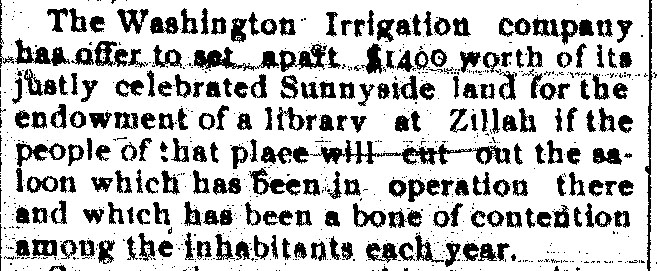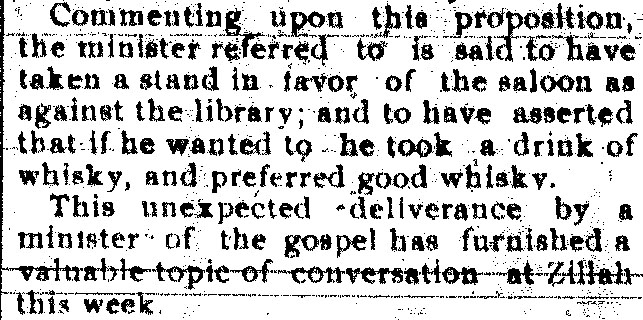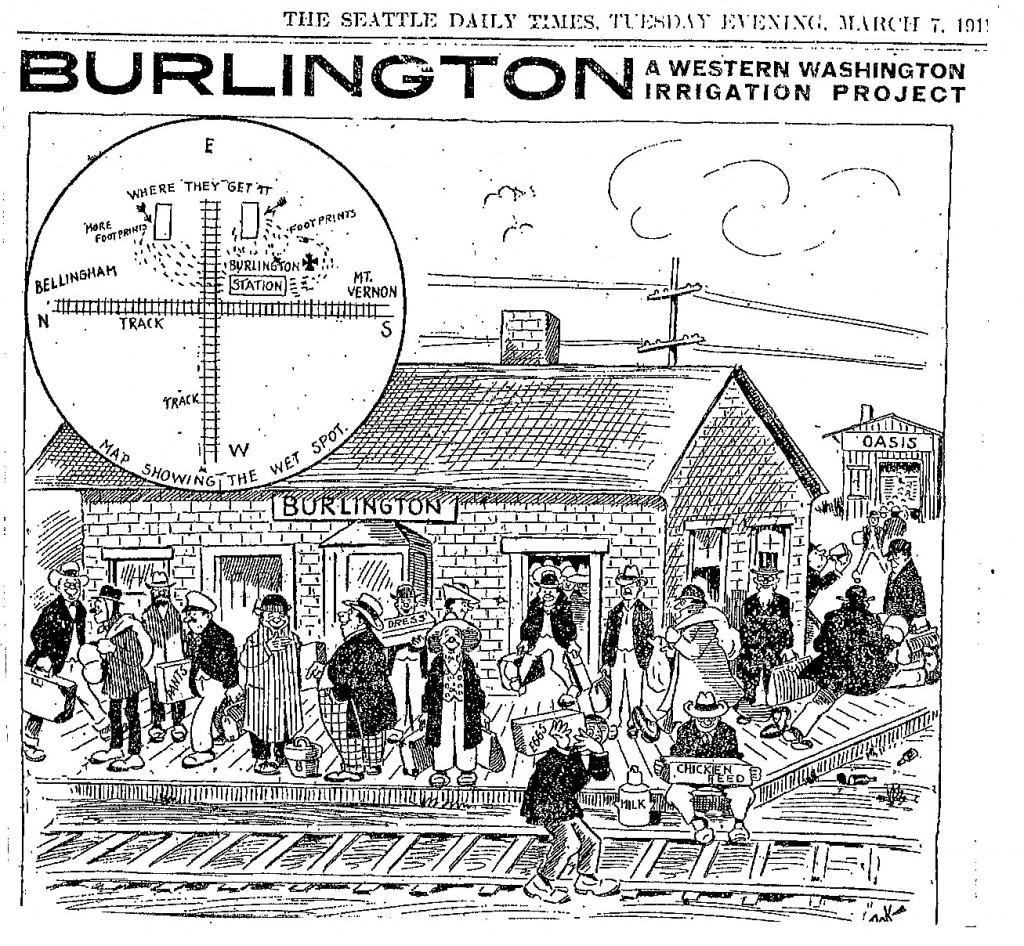 From the desk of Steve Willis, Central Library Services Program Manager of the Washington State Library:
From the desk of Steve Willis, Central Library Services Program Manager of the Washington State Library:
When the Washington Irrigation Company attempted to perform a little social engineering in the community of Zillah in an effort to close the saloon, the cause of alcohol found an unlikely champion. The story is told in the Feb. 20, 1903 issue of the Yakima Republic:
IS A DEFENDER OF BOOZE
A Zillah Minister Who Stands Up For Good Whisky, But Not For Bad
“A minister at Zillah last Sunday night created something of a sensation in his pulpit, according to a resident of that little town who was here this week, when he declared that he occasionally took a drink himself, and that inasmuch as men would get whisky anyway if they wanted it, there wasn’t much harm in giving them facilities for getting good whisky.”
“The Washington Irrigation company has offered to set apart $1400 worth of its justly celebrated Sunnyside land for the endowment of a library at Zillah if the people of that place will cut out the saloon which has been in operation there and which has been a bone of contention among the inhabitants each year.”
“Commenting upon this proposition, the minister referred to is said to have taken a stand in favor of the saloon as against the library; and to have asserted that if he wanted to he took a drink of whisky, and preferred good whisky.”
“This unexpected deliverance by a minister of the gospel has furnished a valuable topic of conversation at Zillah this week.”
“The Zillah man who mentioned the matter to the Republic stated that it is as yet undetermined whether the people down  there will favor licensing the saloon for another year. Recently the proprietor, Correll, hurt himself quite severely, and his bad luck has created some sympathy for him.”
there will favor licensing the saloon for another year. Recently the proprietor, Correll, hurt himself quite severely, and his bad luck has created some sympathy for him.”
The Washington Irrigation Company’s place in the history of the area can be found in The Victory of National Irrigation in the Yakima Valley, 1902-1906.
It appears Zillah did not get a library until Prohibition took effect. Meanwhile, in recent history another church in the town has made the news. In order to publicize the name, the Church of God – Zillah constructed a wire sculpture of the famous Japanese movie monster outside the building.








